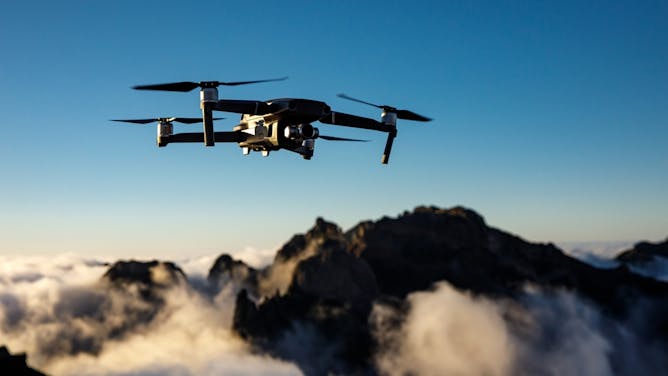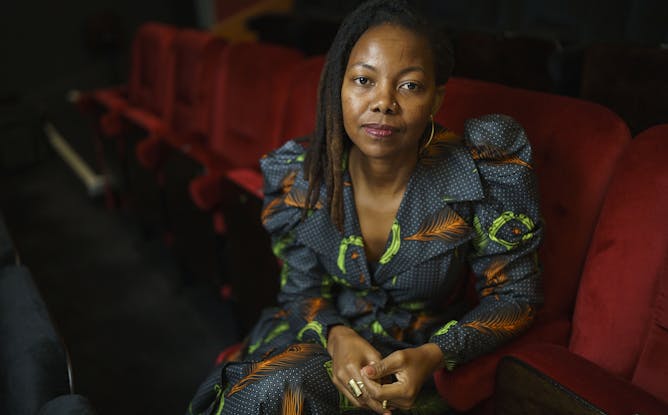|
Over the past few weeks, Denmark’s skies have been punctuated by red and blue lights: drones hovering near airports and military bases, grounding flights, prompting emergency meetings, and leaving citizens unsettled and fearful.
Kathrin Maurer, a professor at the University of Southern Denmark whose research focuses on surveillance, drones and warfare, notes that this fear is far from new. From the all-seeing gods of ancient Egypt to Plato’s invisible Gyges, societies have long grappled with powers that watch, judge and provoke anxiety. Drones might use state-of-the-art technology, but the feelings they stir are as old as civilisation itself. And across Europe, governments and
researchers are now turning to jamming systems, precision lasers, and other technologies to neutralise rogue drones and safeguard both civilian and military airspace.
|

Kathrin Maurer, University of Southern Denmark
We have to remember that aerial reconnaissance has been around for centuries – think of kites, hot air balloons and spy planes.
|
|
|
-
Timothy Naimi, University of Victoria
Liver harm caused by alcohol is a public health problem. Collectively, we need to take better care of our livers by taking steps to reduce alcohol consumption in the population.
-
Jeffrey S. Morris, University of Pennsylvania
The main comparisons in the unpublished report are skewed, and it is being presented as stronger evidence than its design really allows.
-
Lindsay O'Dell, The Open University; Charlotte Brownlow, University of Southern Queensland; Sandra Thom-Jones, University of Wollongong
The science is clear: no link exists between paracetamol use in pregnancy and autism. What lingers is the harm caused when powerful voices spread misinformation.
-
Fenwick McKelvey, Concordia University
GenAI does some neat, helpful things, but it’s not yet the engine of a new economy — and it might not ever be.
-
Kimberley Hardcastle, Northumbria University, Newcastle
We need to understand what AI means for how knowledge is created.
-
Justin Stebbing, Anglia Ruskin University
Surgeons are rethinking removing lymph nodes in cancer surgery as new evidence emerges.
-
Danny Bradlow, University of Pretoria; Ana Saggioro Garcia, Universidade Federal Rural do Rio de Janeiro (UFFRJ); Kennedy Mbeva, University of Cambridge; Sandy Africa, University of Pretoria
Multilateralism is under severe strain. Does the G20 still have a role in this changing landscape?
|
|

Tinashe Mushakavanhu, Harvard University
She experiments with form while capturing the hopes and contradictions of our times.
|